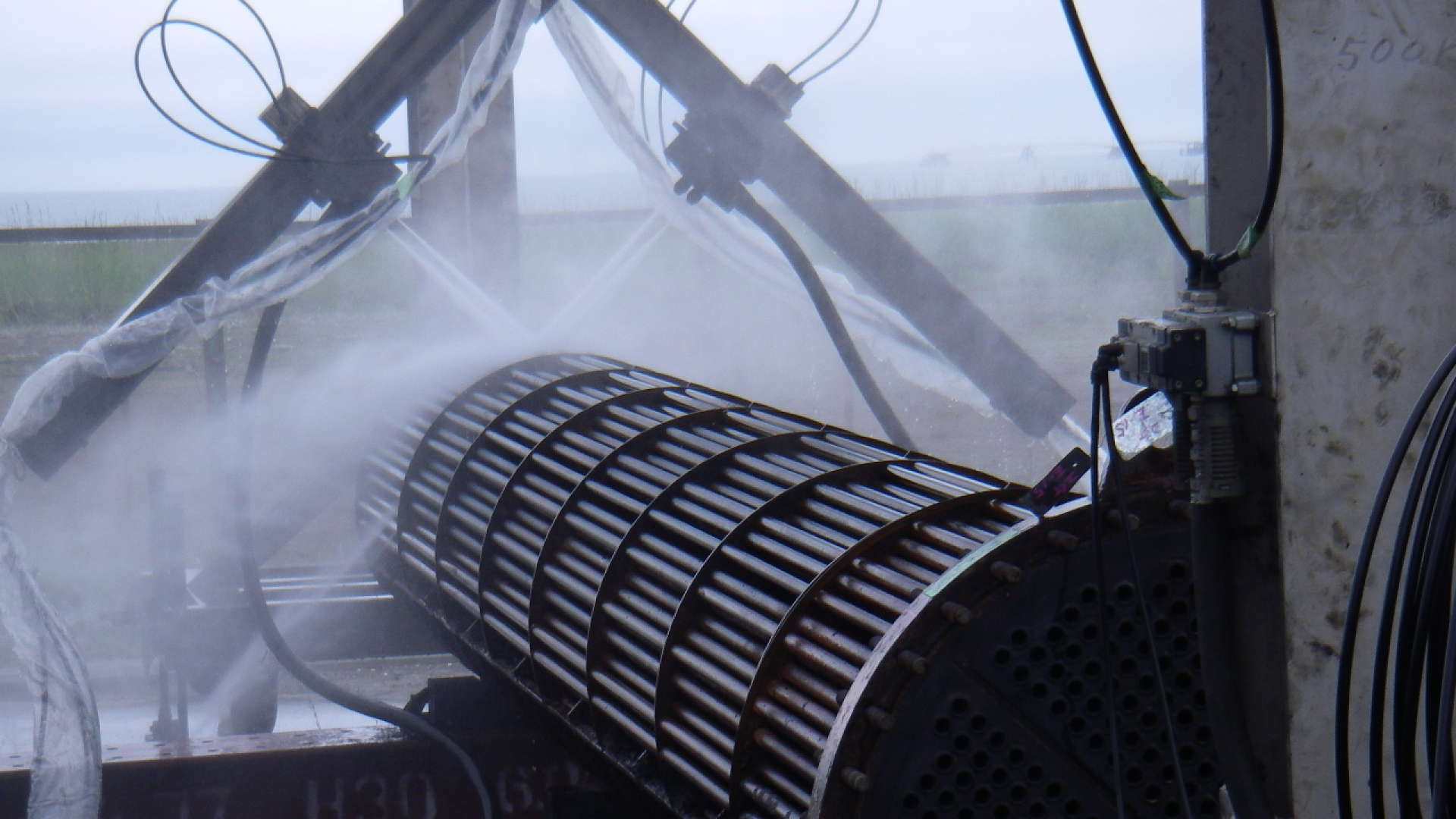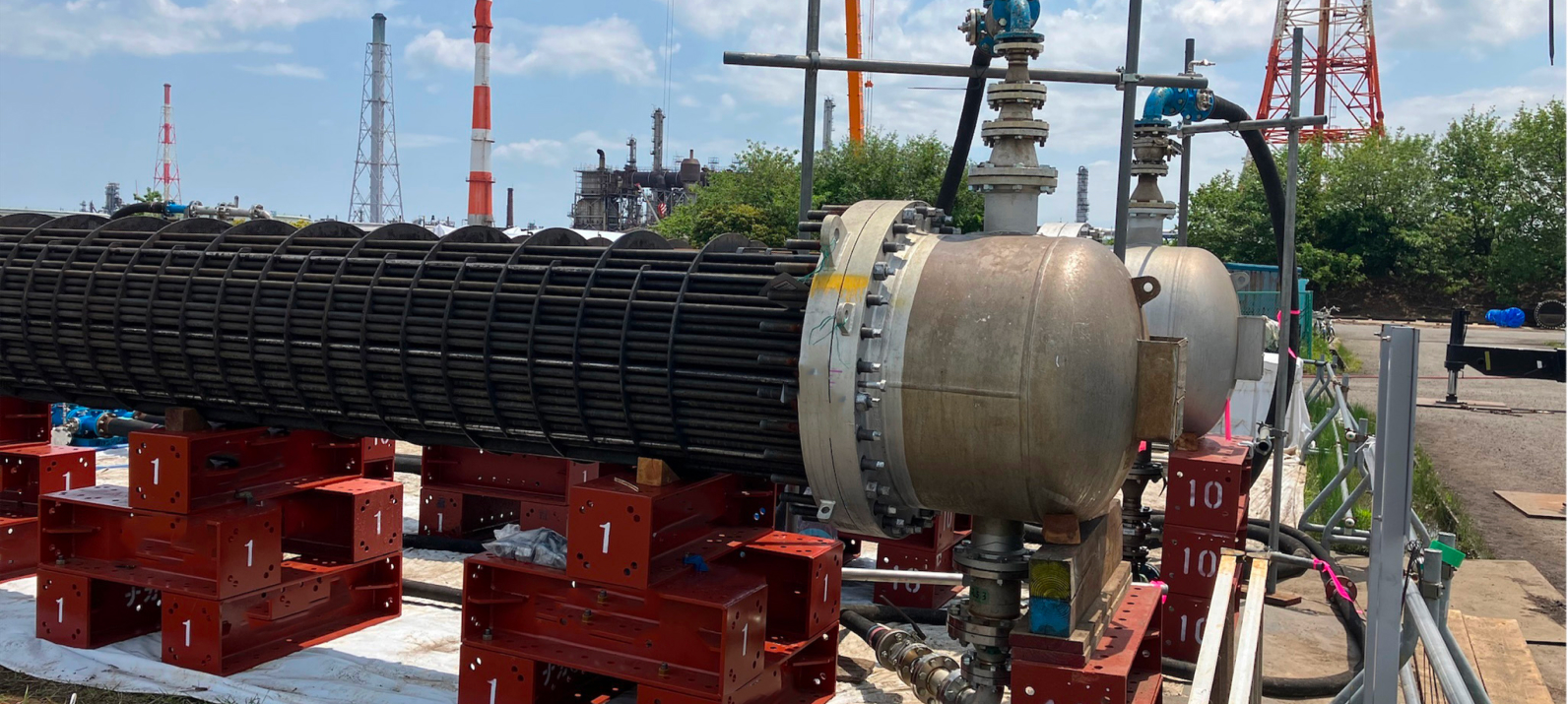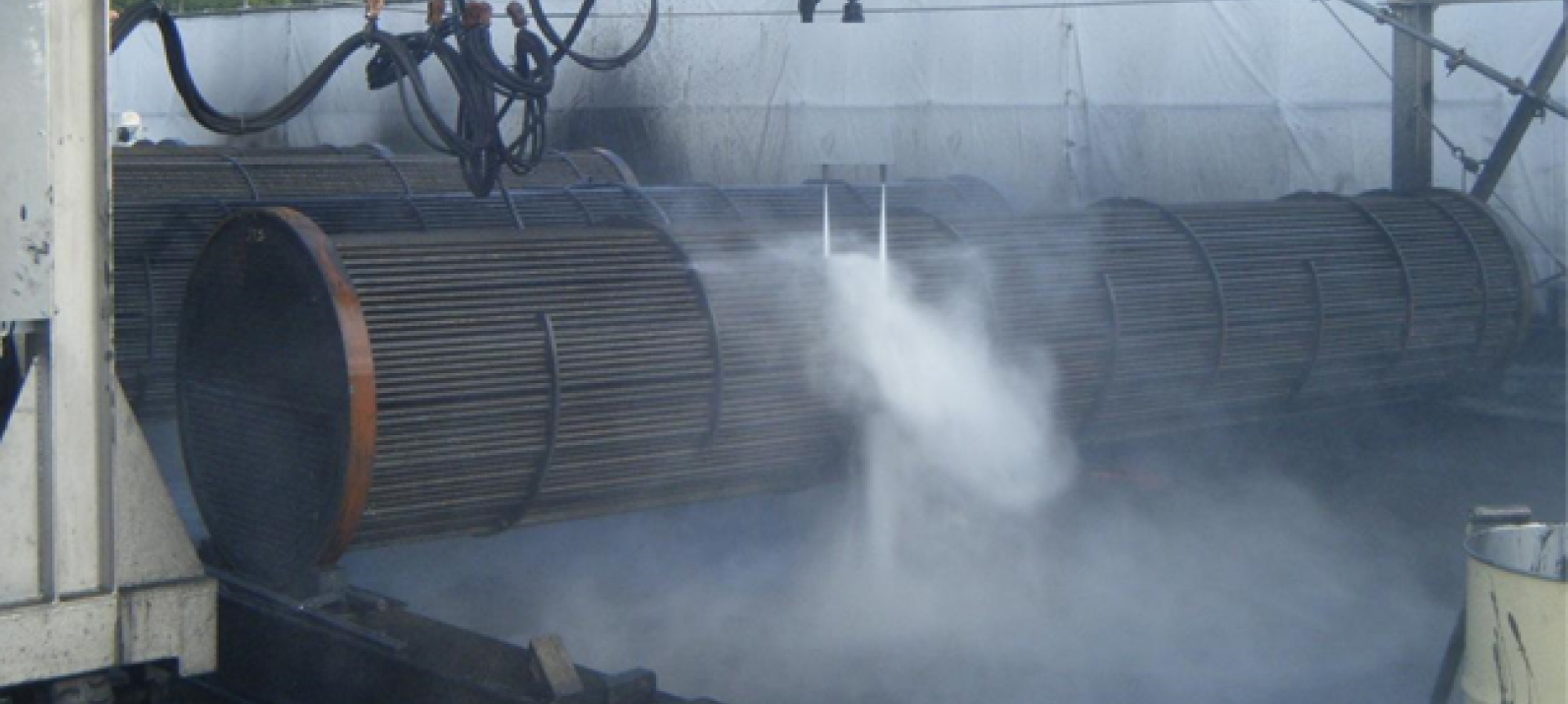Engineering Cleaning | Services
Cleaning with the power of engineering

It is a service that efficiently cleans deposits that adheres to boilers, heat exchangers, and piping of industrial plants using chemicals and high-pressure water, stabilizing operation.
About engineering cleaning
Kurita Group’s service provides the cleaning of accumulated deposits and scale in boilers, heat exchangers, piping, and other equipment of industrial plants such as petroleum and petrochemical plants, power plants, and others, contributing to stabilize operation. The Kurita Group can propose the optimal cleaning methods based on the properties of the deposits or scale and the equipment condition and lifecycle and install temporary tanks and wastewater treatment systems, along with their operational management, as a one-stop service.
Chemical cleaning (On-streaming cleaning)
Kurita Group removes deposits and scale in heat exchangers by adding cleaning chemicals and circulating them to the process fluid side. Cleaning chemicals are selected based on compositional analysis and dissolution tests. In addition, wastewater generated by cleaning is treated to an appropriate quality by temporarily installed tanks and wastewater treatment systems.

Remove scale in OT-applied boilers
Challenges
Thermal power plants generate electricity to send generated steam by boilers to turbines. The steam used by generating electricity is then reverted to a water state by condensers and supplied again to the boiler. If impurities are present in the water supplied to boilers, it can cause scale in boilers and turbines, requiring additional water treatment in boilers and condensers. In addition, boilers of thermal power plants apply the oxygenated treatment (OT) to reduce cleaning frequency. While OT-applied boilers have the advantage of not needing to be cleaned for longer periods, they also have a challenge that makes scale difficult to remove by chemicals.
Solutions
The chemical cleaning service for OT-applied boilers at thermal power plants first analyzes the composition of scale and conducts dissolution tests and then selects chemicals that are highly effective in cleaning persistent and insoluble scale. Then, sludge removal equipment, such as sludge catchers and filters, are installed in the boiler cleaning system to clean the scale using selected chemicals and prevent the sludge generated from returning to the boiler, ensuring to remove sludge. In addition to contributing to the stable supply of electricity by realizing stable boiler operation, the system also contributes to water conservation by reducing the amount of cleaning water used compared to conventional chemical cleaning.
Water savings
Stable operation quality
Physical cleaning (jet cleaning)
Physical cleaning can remove scale using high-pressure water. Choosing the pressures, nozzles, and tool specifications based on the cleaning target and conducting reliable cleaning contribute to the stable operation of equipment.

Remove stains in heat exchangers by automatic jet cleaning equipment
Challenges
Oil stains on heat exchangers in oil refinery plants can cause energy loss due to reduced heat transfer coefficient. To remove these stains, jet cleaning with high-pressure water is typically used. However, this method requires time and effort to remove deposits. In addition, since the nozzle is operated directly by hand, there can be concerns regarding work safety.
Solutions
The automatic jet cleaning device, which sprays a large volume of high-pressure jet water into the heat exchanger, can reliably remove dirt, thereby contributing to stable operation. In addition, the high-pressure water nozzles and hoses are not handled directly by the operator, so the cleaning can be done safety.